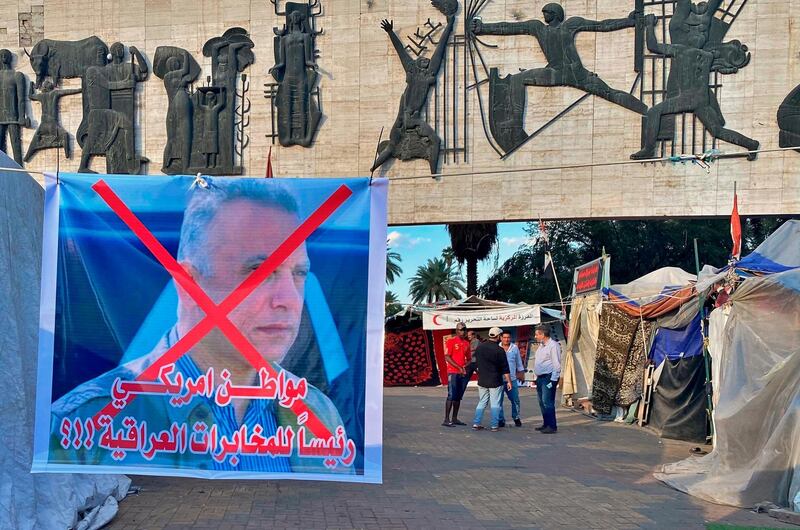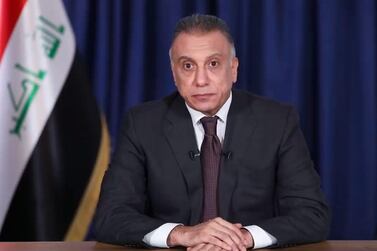Iraq’s prime minister-designate Mustafa Al Kadhimi proposes to restrict access to weapons, curb corruption and hold early elections under a plan presented to Parliament, whose approval he needs to get the job.
Mr Al Kadhimi, a former intelligence chief who does not belong to any party, is struggling to gain support among Iraq’s political factions before the May 9 deadline for his nomination to be confirmed by Parliament.
President Barham Salih tipped Mr Al Kadhimi for the post in early April, making him the third nominee in 10 weeks to form a government.
The country is struggling to replace the government of caretaker prime minister Adel Abdul Mahdi, who resigned last November after months of deadly street protests triggered by lack of services and anger over corruption.
Mr Al Kadhimi's plan is to fight corruption by promoting integration among institutions, to “provide them with the powers to implement necessary laws” and to start auditing financial records.
Iraq is ranked near the bottom of Transparency International's Corruption Perceptions Index, at 162nd out of 180 countries.
Political infighting and corruption have crippled the country’s efforts to recover from sanctions under Saddam Hussein and the conflicts that followed the 2003 US invasion that toppled him, including three years of devastating war to defeat ISIS in 2017.
Mr Al Kadhimi's other priorities are allowing weapons only under the government’s control and returning people displaced by Iraq's conflicts to their homes.
He said his plan would end foreign interference and will "not allow any country to violate Iraq's national sovereignty".
The plan also aims to check the power of armed militias operating outside the state.
Parliament is expected to vote on whether to accept Mr Al Kadhimi’s proposed Cabinet and programme before the May 9 deadline.
Under Iraq’s constitution, Mr Al Kadhimi’s Cabinet must be approved by Parliament or Mr Salih will need to appoint a new candidate.
But experts are sceptical that Mr Al Kadhimi will be able to bring about the changes Iraq desperately needs.
“Regardless of who becomes the next prime minister, the state of politics after these six months, with two failed nominees and a third one struggling, shows that the prime minister cannot improve things with the way the political system is,” said Sajid Jayid, an analyst in Baghdad.
Mr Al Kadhimi will have to hold more negotiations with the different faction before his Cabinet can be passed, Mr Jayid said.
“A partial cabinet will be enough, so if 14 names are agreed on [out of 22] then a vote is possible,” he said.
Mr Al Kadhimi’s government “will be faced with the unenviable task of finding ways to run the state with a small fraction of the revenues Iraq typically receives from oil exports due to sharply declining prices,” Abbas Kadhim, director of the Iraq Initiative at the Atlantic Council, said in a report.
Baghdad must secure "as much support as possible from the international community, which is difficult, since the entire world is consumed with battling the pandemic and there is a scarcity of resources worldwide", Mr Kadhim said.







